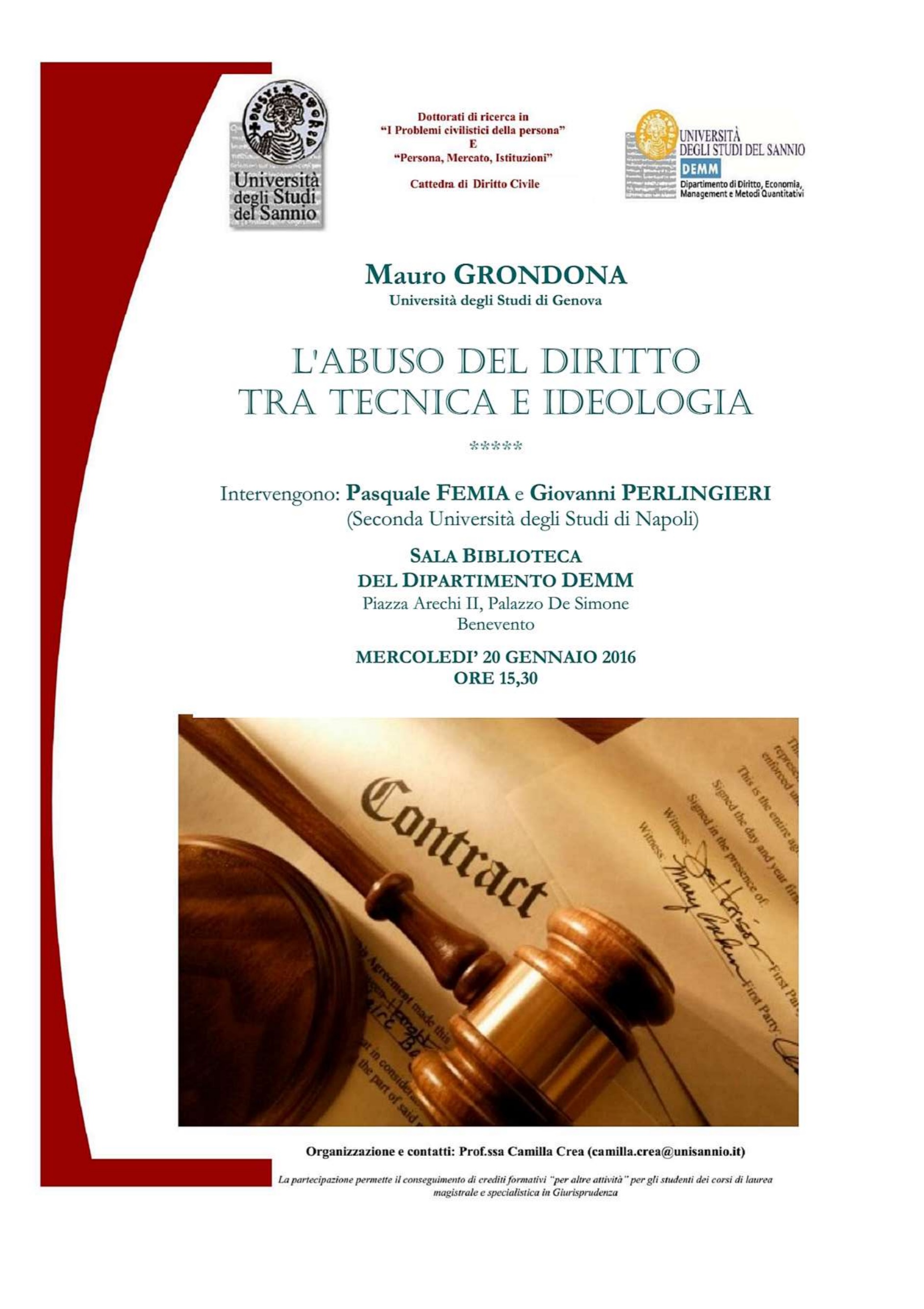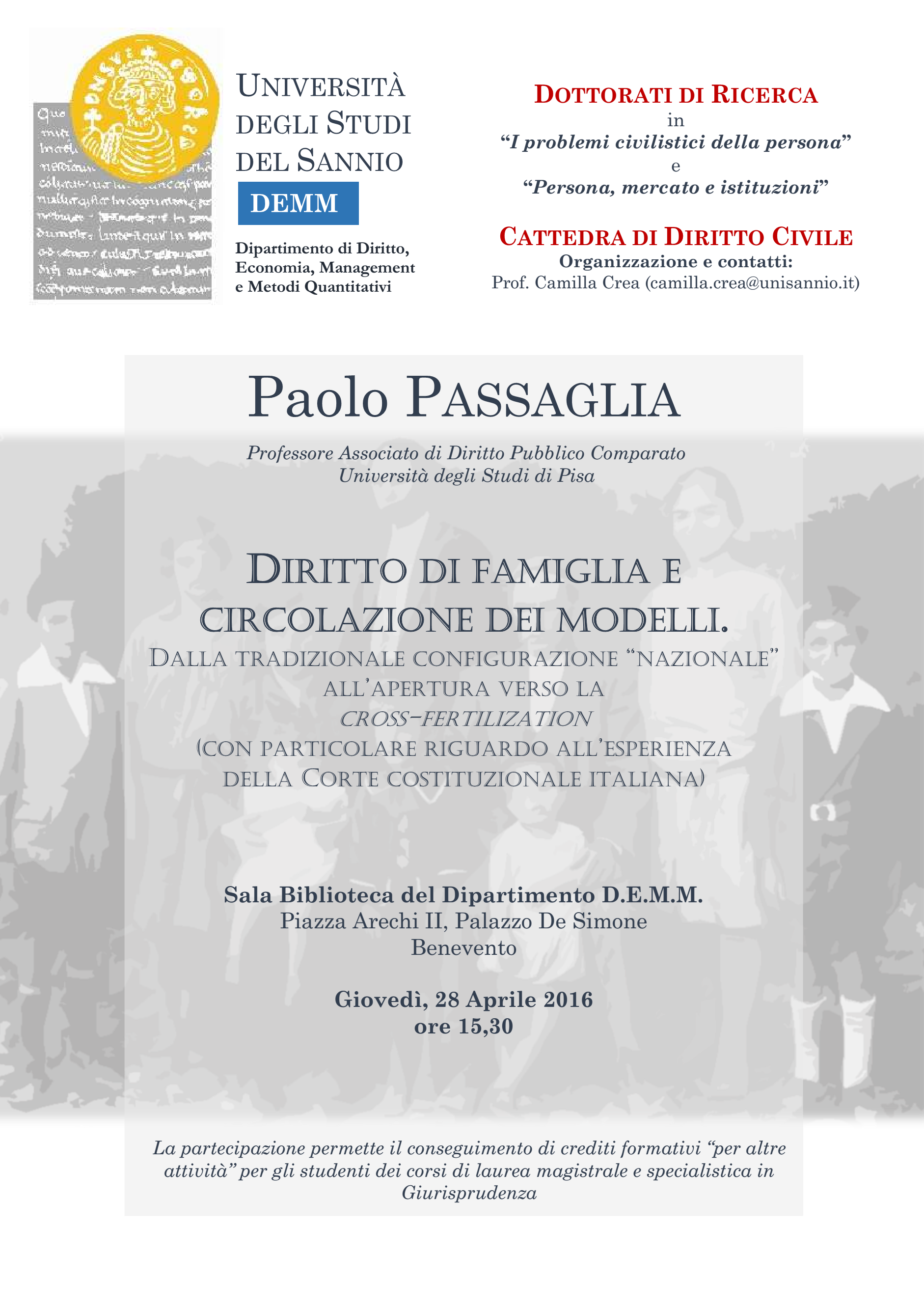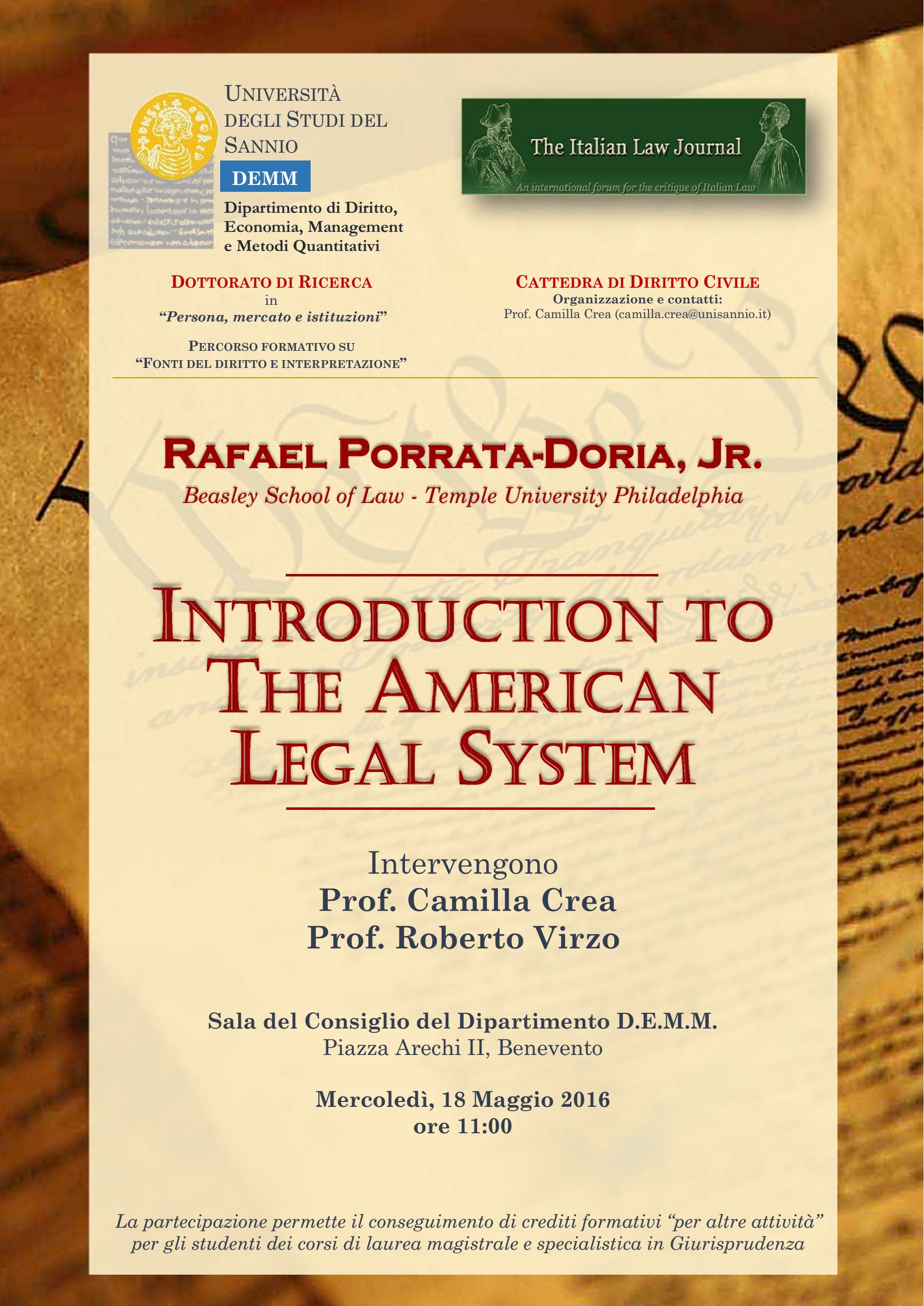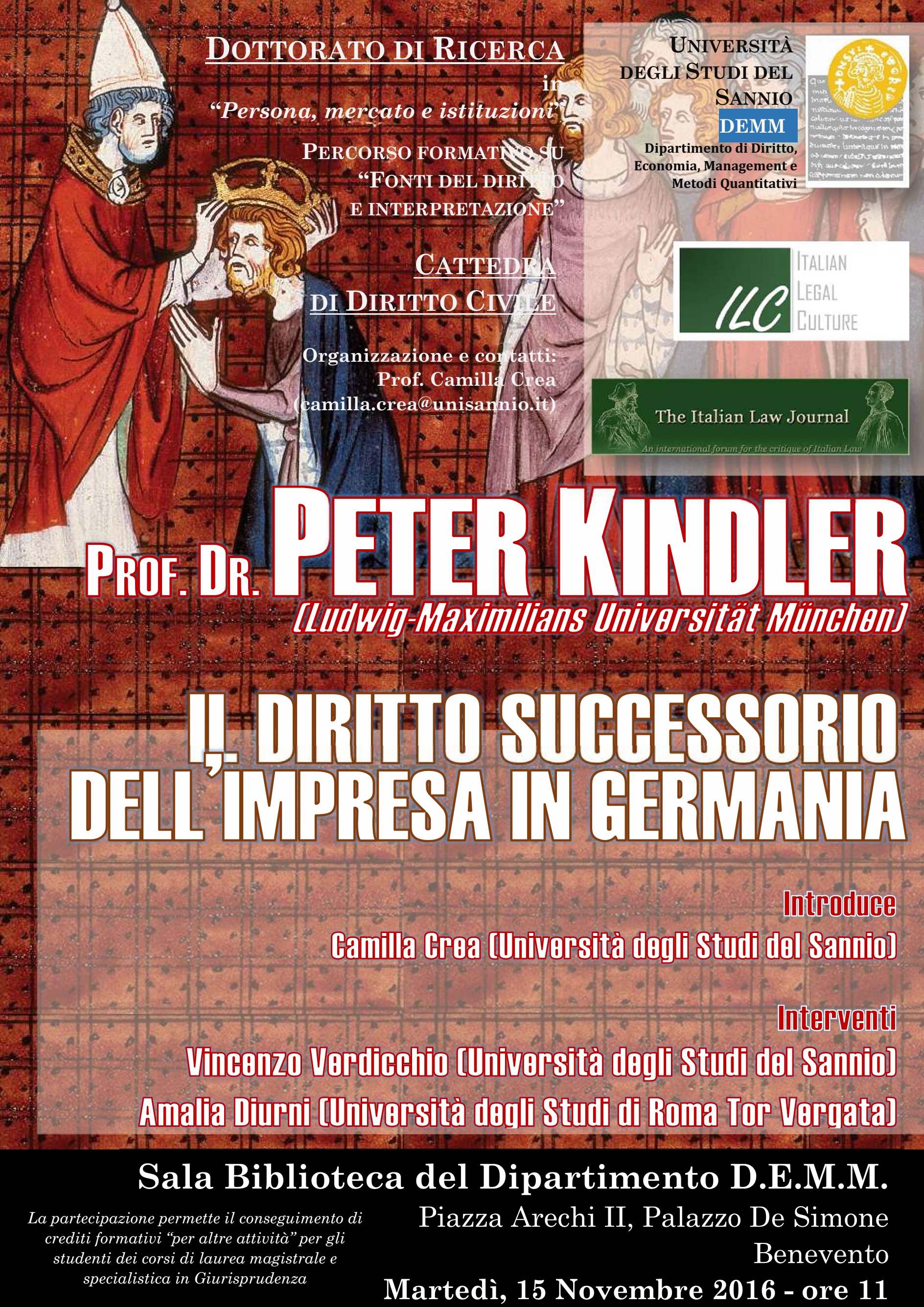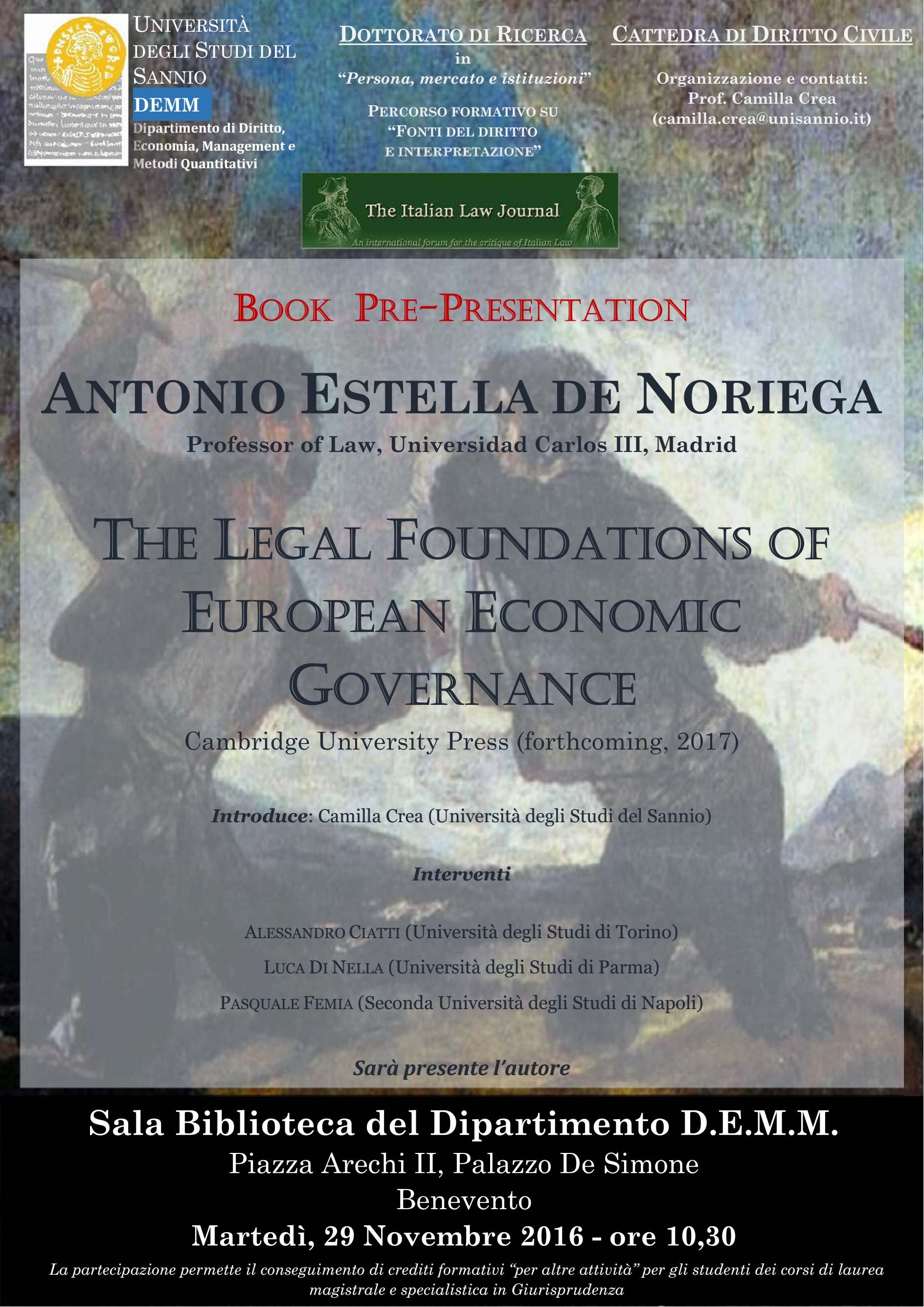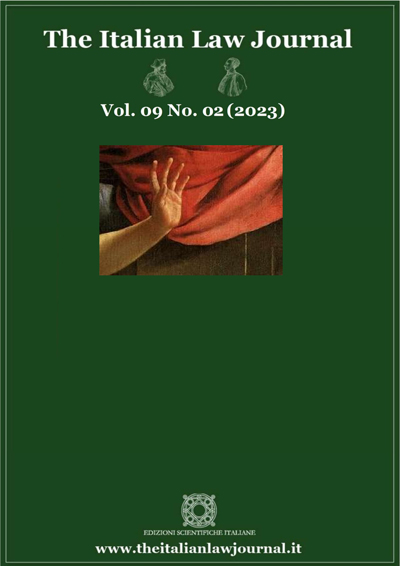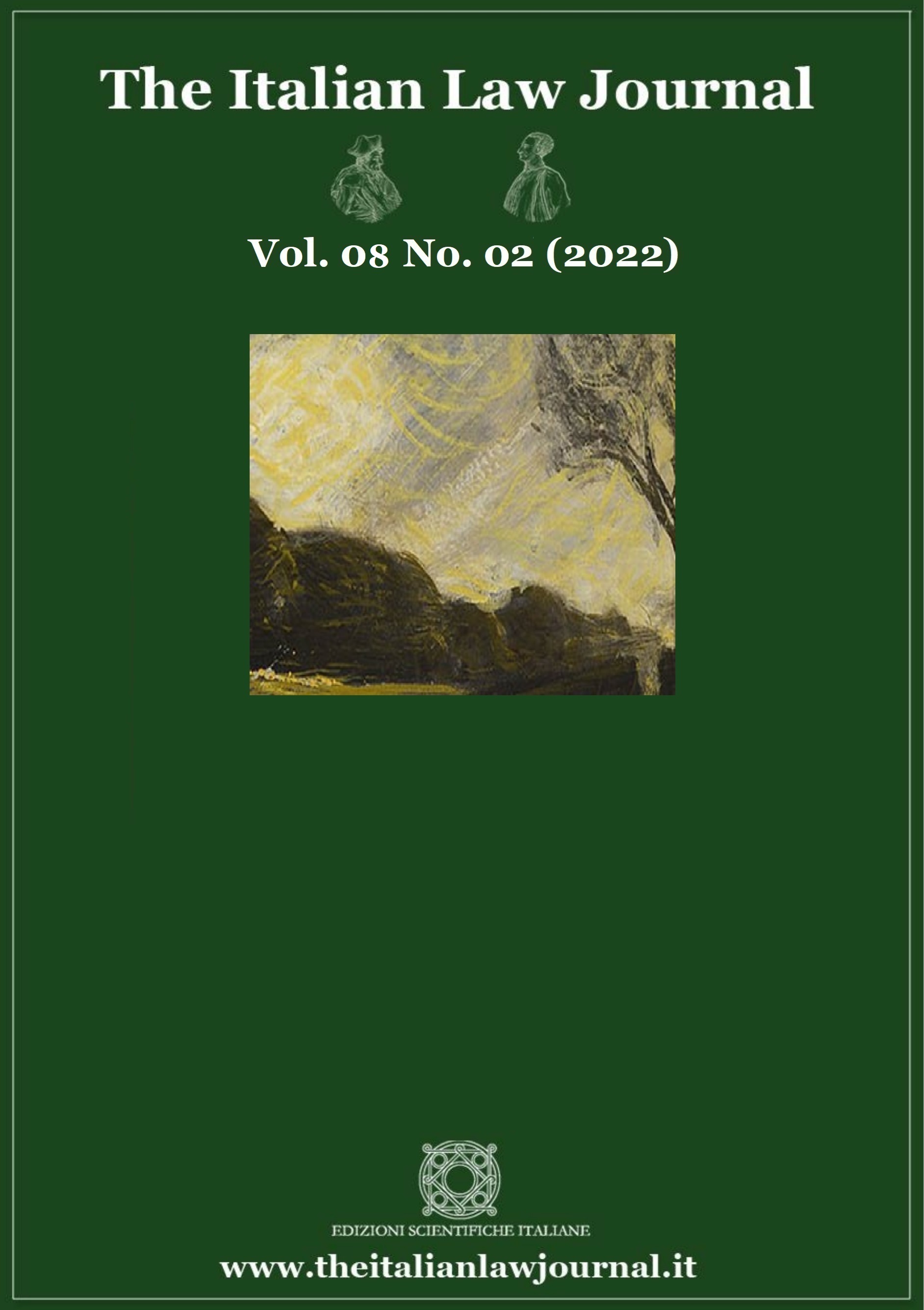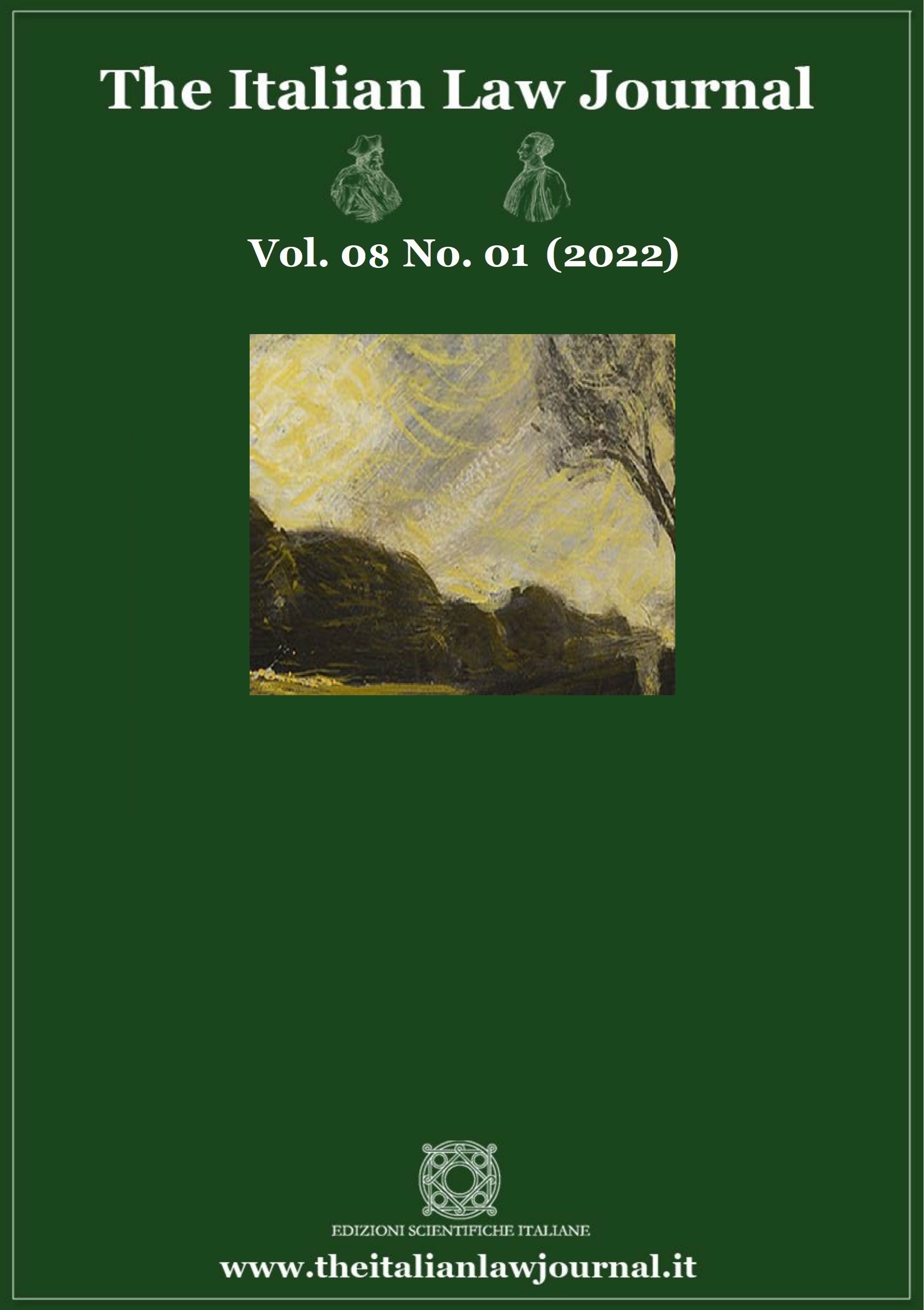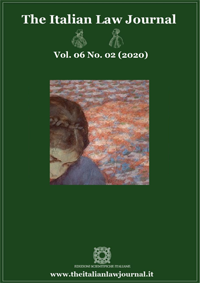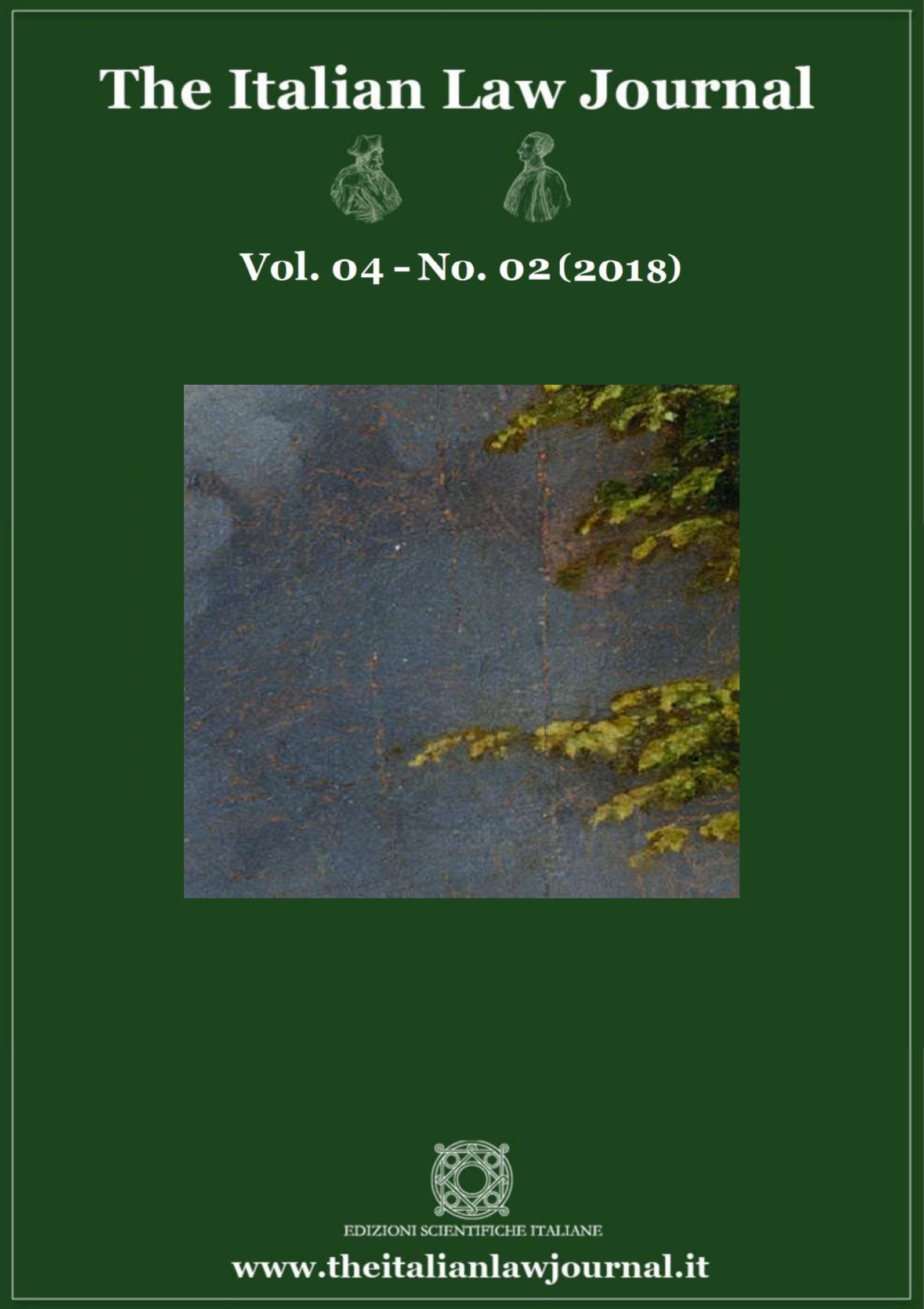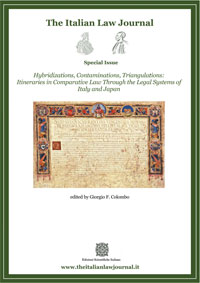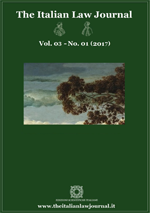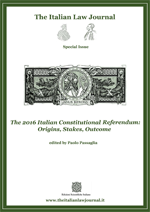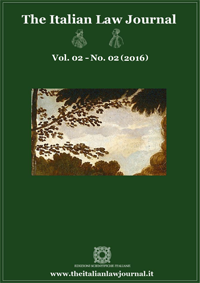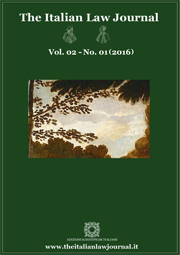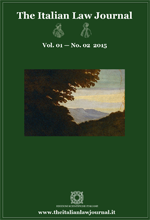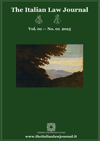|
December 11, 2020

|
|
|
|
|
|
|
|
|
ECtHR, Case of Dupate, 19 November 2020
On 19 November 2020 The European Court of Human Rights ruled that the State violates the right to respect for private and family life (protected by Article 8 ECHR) if it does not properly protect the privacy of public figures’ family members. In the present case, a political party secretary’s wife had covertly been subject to a reportage depicting her immediately after giving birth to her son.
|
|
December 2, 2020

|
|
|
|
|
|
|
|
|
Court of Cassation, Criminal Chamber, no. 30006 of 29 October 2020
The United Kingdom’s withdrawal from the European Union does not prevent Italy from executing a European arrest warrant. Brexit does not undermine fundamental rights also because the European Convention on human rights is still in force in the United Kingdom.
|
|
November 23, 2020

|
|
|
|
|
|
|
|
|
ECJ on air pollution
The European Court of Justice, following proceedings by the European Commission in 2014, ruled that Italy had systematically and persistently infringed the European Directive on air pollution from 2008 to 2017, as regards in particular to PM10 particle concentration in the air of some cities. Therefore, Italy is one of the Countries deferred for exceeding NO2 legal limits in March 2019. |
|
November 17, 2020

|
|
|
|
|
|
|
|
|
In order no. 15774 of 2020, the Court of Cassation ruled that child support allowance shall guarantee the standard of living enjoyed before the parents’ divorce, whereas the maintenance awarded to the weaker ex-spouses only seeks to compensate the sacrifice of their economic and professional ambitions during marriage, in order to pursue the family care and the establishment of family property. |
|
November 12, 2020

|
|
|
|
|
|
|
|
|
Criminal Court of Cassation no. 2 6807/2020
According to judgement no. 26807/2020 of the Court of Cassation, the online sale of Bitcoin, advertised as investment outside the control of the supervisory authority for the Italian financial products market (CONSOB), amounts to financial crime under Article 166 (1)(c) f.u.t.
|
|
November 5, 2020

|
|
|
|
|
|
|
|
|
ECJ no. c. 485/18, 1 October 2020
The ECJ, in Case no. c. 485/18 of 1 October 2020, ruled that Article 26 of EU Regulation no. 1169/2011 on food information for consumers does not preclude Member States from requiring additional mandatory information if aimed at the protection of public health, consumers, industrial and commercial property rights, indication of origin, at the prevention of fraud and the repression of unfair competition. |
|
September 28, 2020

|
|
|
|
|
|
|
|
|
Tribunal of Rome, Chamber VI, Order of 27 August 2020
The Tribunal of Rome upheld the claim of a restaurant owner affected by the economic crisis caused by the Covid-19 Pandemic, who had requested an emergency injunction for the reduction of the due rent. The court justified its decision on the grounds of supplementary good faith which imposes a rebalancing of the contract within the limits of the common alea of contracts. |
June 11, 2018
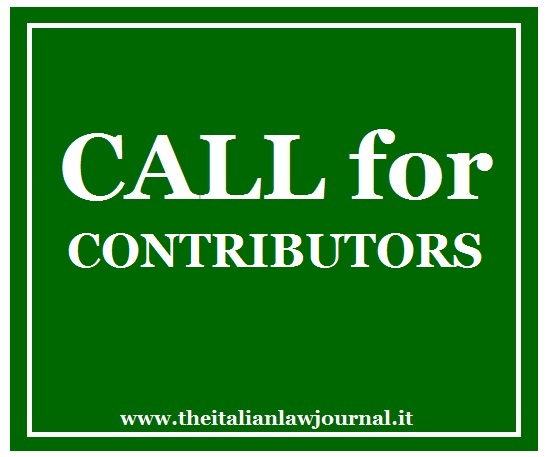 |
Dear Colleague,
We are delighted to announce that submissions are now open for Volume 4, Issue 2 (2018), which is scheduled to be published in January 2019. Articles complying with the editorial criteria and the cultural mission of the Journal (www.theitalianlawjournal.it) are welcome.
The Journal invites, in particular, contributions on these topics:
1. ‘The Masterpiece Cakeshop Case from a Comparative (and Italian) Standpoint: Decide or Not to Decide?’ (Short Symposium)
The Journal will host a short symposium on the Supreme Court of the United States’ landmark decision in Masterpiece Cakeshop v Colorado Civil Rights Commission, which was handed down on June 4th, 2018. The Court ruled that the Commission violated the First Amendment’s free exercise clause and the State’s obligation of religious neutrality in assessing a baker’s reasons for refusing to make a wedding cake for a same-sex couple citing his religious beliefs. The Court, however, left open the question of whether businesses can invoke their religious beliefs to exempt themselves from anti-discrimination laws, arguing that this ‘must await further elaboration’.
We welcome contributions both from public and private lawyers, possibly using comparative arguments, focusing on religious liberty and free speech, and their limits (eg discrimination based on sexual orientation, party autonomy and free market issues).
2. ‘Board Composition and Corporate Governance in Listed Corporations’ (Corporate and Financial Markets Law Section). More specifically, the call focuses on papers examining, also in a comparative perspective, independent directors, directors appointed by minority shareholders, or gender-quota in the boardroom. Contributions including empirical analysis and/or an interdisciplinary approach are welcome.
Please submit your article no later than 30 September 2018, or 31 October 2018 if you are a native English speaker and your article does not require editing for good English grammar and style. We accept submissions through Scholastica and ExpressO, or you can reach out to us directly at info@theitalianlawjournal.it. Further information on the general topics and aims of our Journal, as well as on the submission guidelines and the double-blind peer-review process is available at www.theitalianlawjournal.it.
Please feel free to contact us if you have any questions and to circulate this message to those who might be interested. We look forward to hearing from you.
Kind regards,
The Editors-in-Chief
Camilla Crea, Andrea Federico, Pasquale Femia, Giovanni Perlingieri
The Corporate and Financial Markets Law Editor
Marco Ventoruzzo
|
April 4, 2018
 |
The Conference 'Digital Revolution: Data Protection, Artificial Intelligence, Smart Products, Blockchain Technology and Virtual Currencies. Challenges for Law in Practice' will take place in Treviso, Italy, on 19-20 April 2018, featuring speakers from Germany, Netherlands, USA (Berkeley and California), Hong Kong, UK, Spain, Italy, Austria, France, Belgium, Hungary, Poland, Bulgaria, Estonia, Lithuania, Luxembourg, Monaco and Switzerland, as well as the team leader of the European Commission on Artificial Intelligence, 3D Printing and Robotics.
The event is sponsored by the Italian Law Journal and several members of the Board will speak: the advisor, Prof. Michael Lehmann, Max Planck Institute for Innovation and Competition of Munich; the Associate Editor, Dr. Marco Bassini, Bocconi University; the Associate Editor, Dr. Alberto De Franceschi, University of Ferrara, who has co-organized the event.
Please click here to view the conference brochure.
|
March 19, 2018
 |
The Italian Law Journal invites you to cooperate with the Constitutional Court Watch, an academic initiative designed to stimulate the interest of the international legal community in relation to the Italian constitutional jurisprudence.
Instead of proposing a simple translation of published rulings, the section deals with analyzing the issues addressed by the most recent and relevant judgments. The selected scholars will receive a list of judgments among which it will be possible to freely select a case to comment in agreement with the Editorial board. The comment note should have an approximate length of 6000 characters and must be written in English. Before publication, all contributions will be subject to English language editing.
The initiative – now in its second year of life – was started under the auspices of Prof. Paolo Grossi, President of the Constitutional Court, and supervised by Paolo Passaglia, Full Professor at the University of Pisa and pro tempore Coordinator of the Comparative Law Area, Research Service, Constitutional Court of the Italian Republic.
This call is aimed at curious and dynamic scholars who are eager to face new challenges. Certified skills in English and a Ph.D. in Law oriented to the disciplines indicated below will be evaluated. Further experiences such as research activities carried out abroad are also appreciated.
Experts in administrative and/or criminal law are especially invited to submit their application. The applicant’s interest in legal comparison will be particularly appreciated.
The call expires on 15th April. The outcome of the selections will be announced within a short time.
If interested in participating you are kindly invited to send a copy of your curriculum vitae in an extended version, with updated contact details, to info@theitalianlawjournal.it to the attention of Dr. Stefano Deplano, Senior Executive Editor of the Journal.
The subject must indicate «CCW – Call for Contributors 2018».
|
October 16, 2017
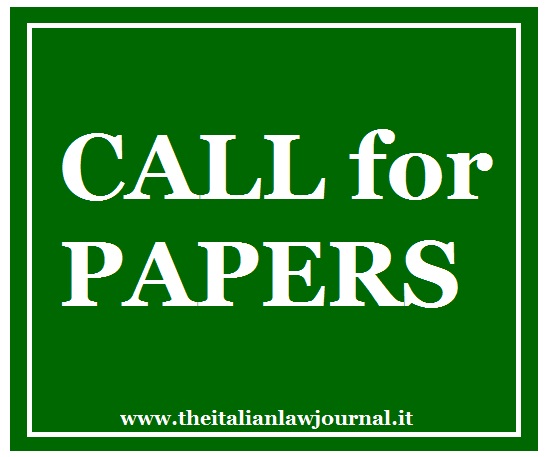 |
Dear Young Scholars,
The Italian Law Journal is launching the new ‘Constitutional Court Watch’, a section devoted to the promotion and dissemination, on the European and international scene, of some of the most meaningful decisions handed down by the Italian Constitutional Court.
The section will provide reasoned outlines of these judgments.
If you are willing to join our initiative, please submit your application and proposal via e-mail by 23 October 2017, to info@theitalianlawjournal.it, typing ‘CCW’ in the ‘Subject’ box.
You will then receive an e-mail of acceptance, upon which you will be given 30 days to return the completed outline.
Attached herewith are:
a) the list of selected judgments;
b) the .pdf file of the last Constitutional Court Watch published; and
c) a form to be filled out and enclosed with the e-mail containing your proposal.
Prof. Paolo Passaglia
Constitutional Court Watch Editor
|
September 21, 2017
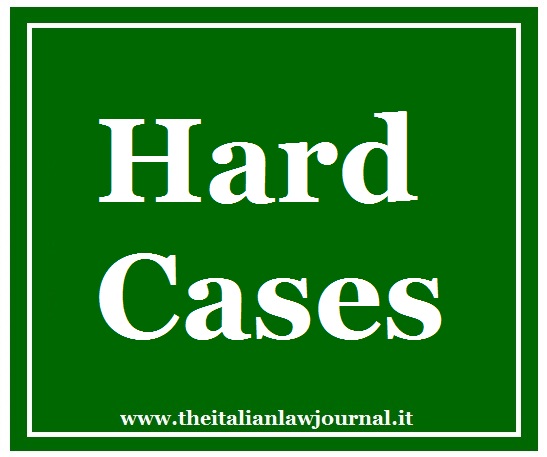 |
Italian Corte di Cassazione 5 July 2017 no 16601
In the current legal system, the purpose of civil liability law is not just to make the victim of a tort whole again, since the functions of deterrence and punishment are also inherent in the system. The American doctrine of punitive damages is therefore not ontologically contrary to the Italian legal system. However, the recognition of a foreign judgment awarding such damages is subject to the condition that the judgment has been rendered in accordance with some legal provisions of the foreign law guaranteeing the standardization of cases in which they may be awarded (tipicità), their predictability, and their outer quantitative limits. The enforcing court must focus solely on the effects of the foreign judgment and on their compatibility with public policy.
|
June 12, 2017

|
We are delighted to announce that submissions are now open for Volume 3, Issue 2 (2017), which is scheduled to be published in December 2017. The issue will host contributions in the area of corporate law and securities regulation in an ad hoc Section coordinated by Prof. Marco Ventoruzzo, entitled ‘Italian Corporate Law in the Context of a Globalized World’. The full details on the Corporate Law Section’s Call for Papers are available here.
We accept submissions through Scholastica and ExpressO, or you can reach out to us directly at info@theitalianlawjournal.it.
|
----------------------------------------------------
Past Events
